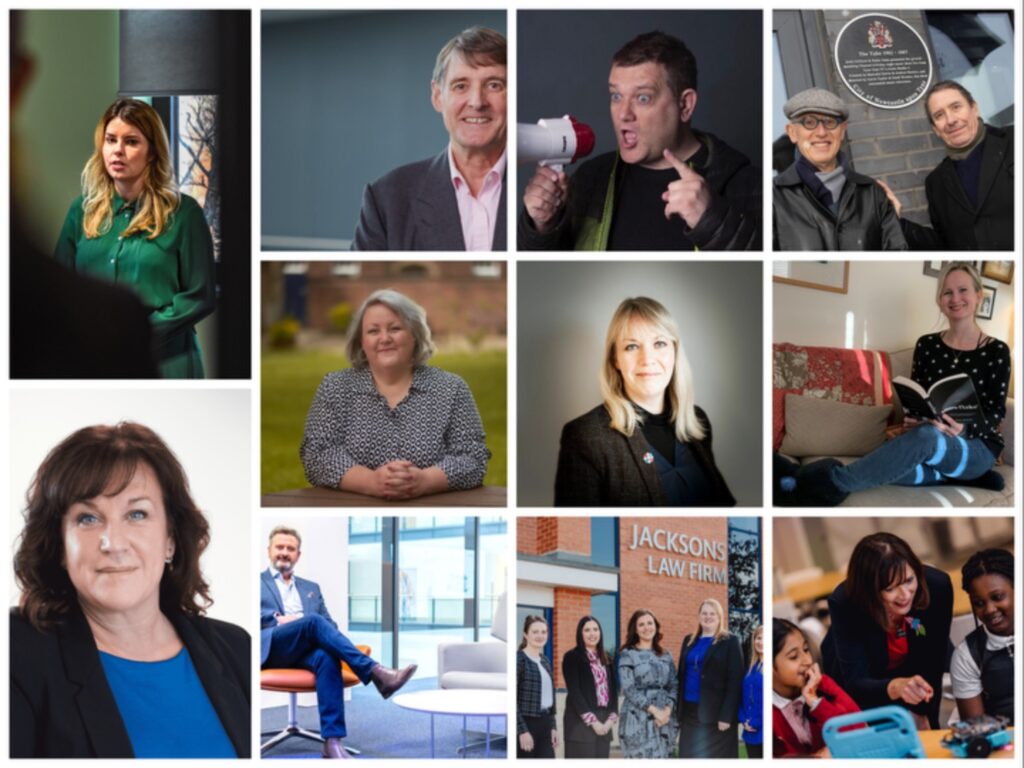
The North East election wish list is long and varied. Some favourites did emerge. Ending child poverty, investing in the NHS and social care, taxation and planning, along with a return to honesty, integrity and standards in public office.
So here is our collection of ‘one wish in one paragraph’. How long is a paragraph you may ask. Turns out it is the same as a piece of string.
John McCabe, chief executive, North East Chamber of Commerce: “If I had to boil the Chamber’s election asks down to a single priority it would be around the future of work. I’d invite the new government to work with us on measures to address child poverty, improve educational attainment, tackle the mental health crisis in our schools and build a skills strategy fit for the future.”
Claire Riley, Executive Director of corporate governance, communications and involvement at North East and North Cumbria ICB: “Eradicate child poverty.”
Sophie Milliken, CEO of Moja: “It would be good to see a proper reform of the NHS. From the crazy 8am scramble to get a GP appointment through to waiting lists and disgruntled junior doctors, there’s a lot that would make it better!”
Kim McGuinness, Mayor, North East Combined Authority: “I wish for more, real devolution to give local people control of our future in the North East. The gap between us and London has grown despite the previous government’s commitment to so-called ‘levelling up’. Too many young people are growing up in poverty and feel left behind. We will make this region the home of real opportunity and we have made the first step. We’ll use it to create jobs, fix our broken transport system, fight child poverty and create an infrastructure of opportunity. But we can go further and go faster with more devolution and more local decision making.”

Ray Laidlaw, Lindisfarne: “I believe the NHS is the UK’s greatest achievement. I also think the majority of people agree with this statement and that most taxpayers would be prepared to pay a little more, say £10 or £20 per month, if they knew that this money was only to be used to finance the NHS, to get it working properly again and keep it out of the hands of greedy, private health care companies. I would love to see this as a government policy.”
Peter Darrant, CEO Pride World Media & Chair of Out North East: “My wish is for the government to stop politicising gender, identity and sexuality and focus on the big issues that impact all of us — health, cost of living crisis, the environment and global security. Who someone loves or how they identify should be celebrated and not weaponised. We’ve had too many years of governing by division. It’s time to change.”
Rachel McBryde, Founder & Director McBryde and Co: “Invest more money in the renewable energy sector, particularly in offshore wind. It’s needed to scale at the pace to meet Net Zero and to create more and better jobs in the sector; in turn this supports our environment and helps develop new skills and futures for our young people.”
Alison Dunn, CEO Citizens Advice, Gateshead: “That is super easy for me. It’s the two-child benefit cap. A policy that is draconian and causing immense hardship to our poorest families. I’d scrap it in the blink of an eye.”
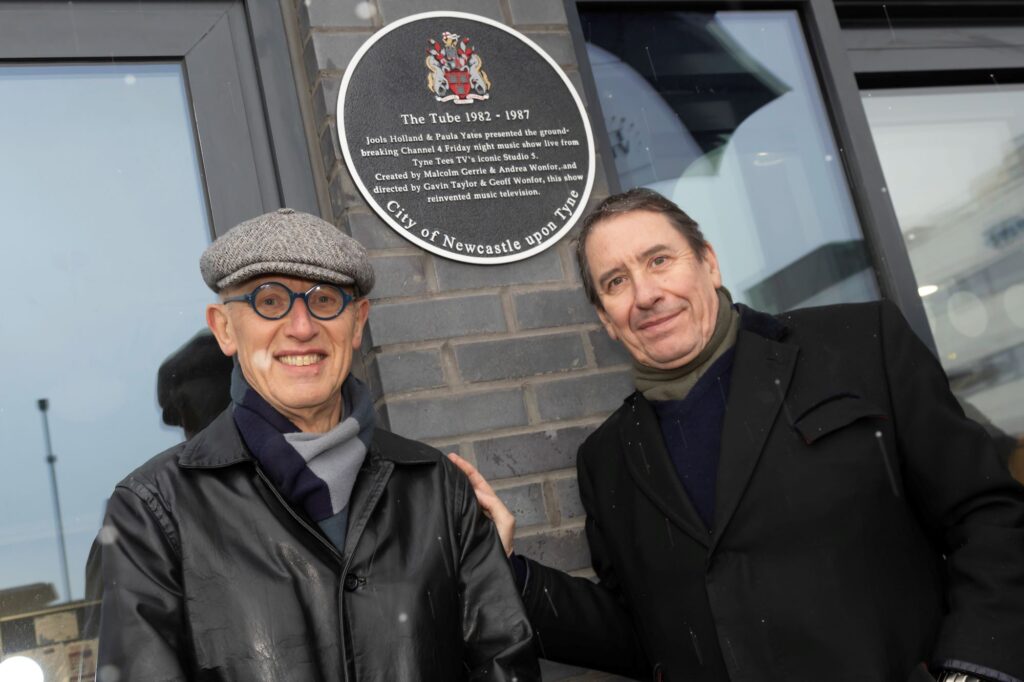
Arthur Mackenzie, playwright and screenwriter: “Given we are all heading for the same destination, my wish would be for the government to bust a gut to solve the social care problem. Everyone deserves care and dignity in old age and sadly this is left to a piecemeal system. Care workers paid a minimum wage whilst private care homes charge maximum. The quality of care for patients with dementia is critical, requiring specialist training in understanding this b*****d disease. There has been a mass exodus of those with necessary experience so the void is filled with temporary staff who cannot understand the patients in their care and give them the empathy and time required. We seemed to get COVID sorted because of fear… and the collective will, so we should put the same effort into social care in order that we can all enjoy our last journey into the sun instead of a pit of hell with the devil dementia.”
Corinne Lewis-Ward, chair Generator Union: “My wish would be that culture is an integral part of their strategy for growth, rebuilding communities and the visitor economy. And that supporting neurodiverse creatives in particular is a priority. Both of which will have a positive impact upon our high streets, employment and boost our local and national economy.”
Mark Quigley, Head of Personal Injury, Sintons LLP: “I’d scrap income tax for everyone earning £30k and under, the best way to reduce inequality and get people out of the poverty trap.”
Ammar Mirza, CBE, Chair and Founder, ABConnexions: “I wish that the government would reintroduce Every Child Matters in an effort to help address the division that exists and has come to the fore across all politics and communities. My biggest concern is for young white boys who are being alienated and we risk losing them. Inclusion should be about helping everyone realise their ambitions and raise their aspirations, whilst justly addressing the inequalities.”
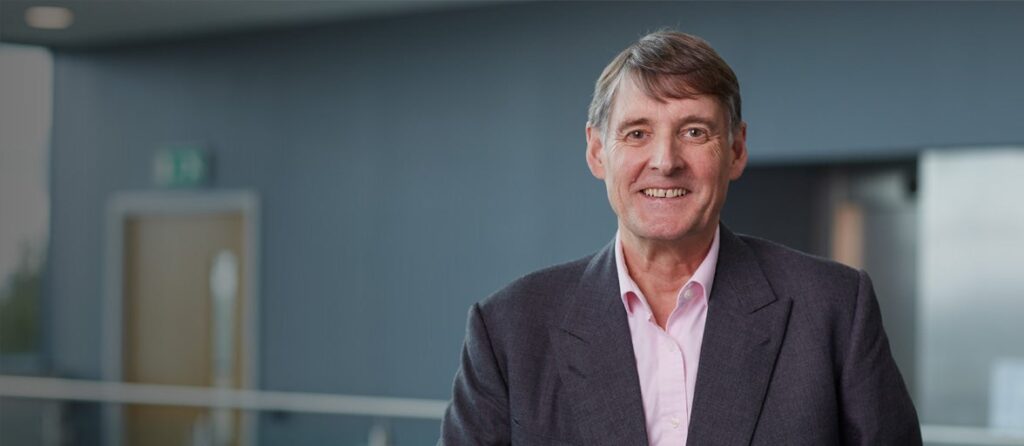
James Ramsbotham CBE, chair Newcastle Building Society: “My biggest wish would be for a thorough reform of our governmental system including a requirement for honesty and strict adherence to the Nolan Principles and proportional representation. It’s all about standards in public life.”
Steve Beharall, CEO at Newcastle United Foundation: “I would wish that a new government would allow one per cent of the Local Government Pension to be invested in projects in the North East to create more jobs, build our economy and still make a return for the pension fund. There is money in the system and it needs to be unlocked and invested in the right way in our local communities rather than globally. More homes, more jobs, more industry, more opportunities for local people and businesses. We don’t need to do different things but we do need to do things differently!”
Herb Kim, Founder, Thinking Digital Conference & TEDxNewcastle: “Raise the UK income tax personal allowance to £40,000 to reward work, help the cost of living crunch and slow rising income inequality. Naturally this would demand further public sector cost cutting and increased income taxes for the highest earners as well as additional wealth taxes.
Ian McElroy, chief executive Tier One Capital: “I would like them to add first aid and personal finance to the national curriculum from the start of primary school.”

Mark Henderson, chief executive, Home Group: “A UK Housing Strategy set in stone for the lifetime of the next two Governments.”
Ruth Parker, CEO, Emmaus North East: “The 2019 manifesto promised more social housing, affordable homes and legislative changes against landlords. It simply hasn’t happened and I see first hand the impact of that every single day and it impacts on every public service. My pledge is more affordable homes, rent caps, support for those facing poverty and deprivation and an increase in resources for mental health support. And absolutely against national service.”
Keith Gregson, historian: “According to some polls there is a majority for raising some taxes in order to improve public services — and especially the NHS. I would like a government with the bottle to do just that.”
Jacqui Miller-Charlton, chair OSA Distribution Ltd: “What I’d really like is a complete reform of our political system as I don’t feel any party in their current guise has the talent or capability of leading our great nation…. It’s time for radical change … maybe cross party coalition taking the best man or woman for the job per region who have a proven track record at having consistently delivered and worked hard for the people they represent… or different parties tackling different issues ie NHS, labour, the economy, conservatives, etc.
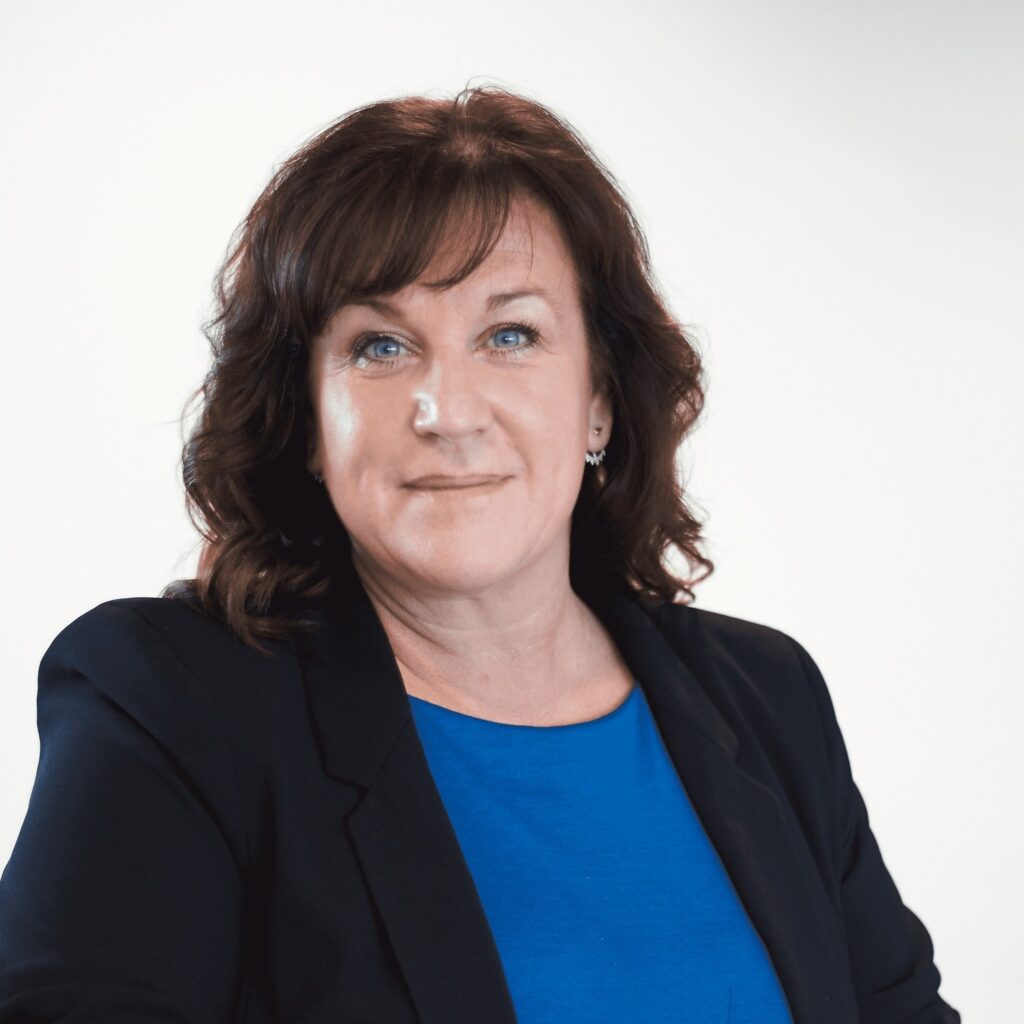
Nham Lee, Commercial Growth Specialist: “Education, more money for teachers, smaller classes and more focus on individual learning needs including focus on skilled based learning as well as academic learning.”
Charlie Hoult, executive chair Opencast Software: “I would advocate differential taxation so the North East could reduce tax, allowing there to be a financial advantage to invest and employ people in the region, or for folk to retire here. This happens in many places in Europe and the US, for example the semi-autonomous South Tyrol in Italy or in the state of Florida. Without radical change in the Treasury formulas, places with a larger population will always get more investment, so the North East will suffer and get stuck.”
Lucy Nichol, author and PR: “Nationalisation. I would like to see the next government remove essential services from the hands of profit makers, so that decisions, relating to water cleanliness, health, energy, rail, etc, are made based on societal needs and not fat cat bank balances.”
Kevan Carrick, JK Property Consultants: “Show integrity. We are promised growth by both major parties. We know that to grow we must achieve better productivity. Growth as shown in the GDP figures has flatlined since 2015. How will we create growth, especially for the lower economic areas, such as the North East and not burden all with raised taxes?”
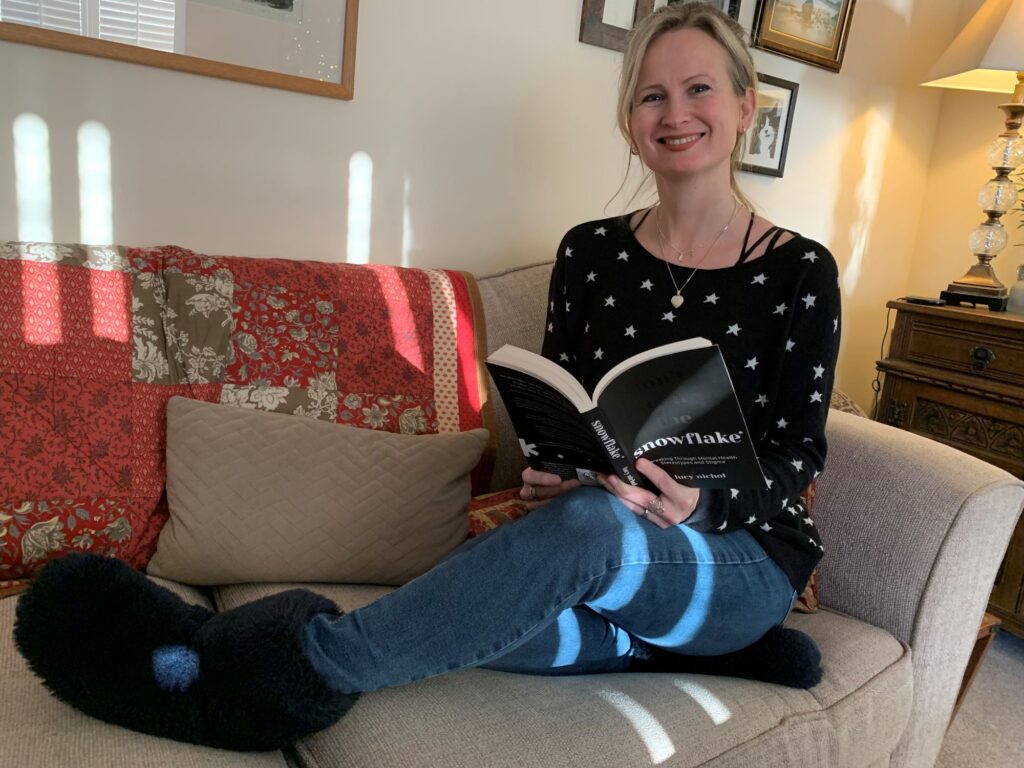
Nicki Clark OBE, chief executive at UMi: “That the plans and investment decisions are focused on long term change and outcomes, not short term quick but unsustainable ‘fixes’.”
John Marshall, chair North East Chamber of Commerce: “My wish would be to acknowledge health inequalities and food poverty and introduce positive steps on the journey to eliminate both. A focus on prevention is needed just as much as cure.”
David Dunn, CEO Sunderland Software City and Dynamo North East: “The UK needs to focus on creating a tech talent pipeline, this would make the UK stand out amongst its global peers and accelerate both domestic company growth and inward investment. The apprenticeship levy needs changing to allow its use for hiring early career developers. This would also create new revenue opportunities for forward thinking further and higher education institutions”.
Louise Thomson, founder and CEO of Myfolks Ltd: “I’d love to see more courage in healthcare planning. We need to focus on prevention and social wellness, over the long term, not a parliamentary term, taking advice and soundings from all sectors.”
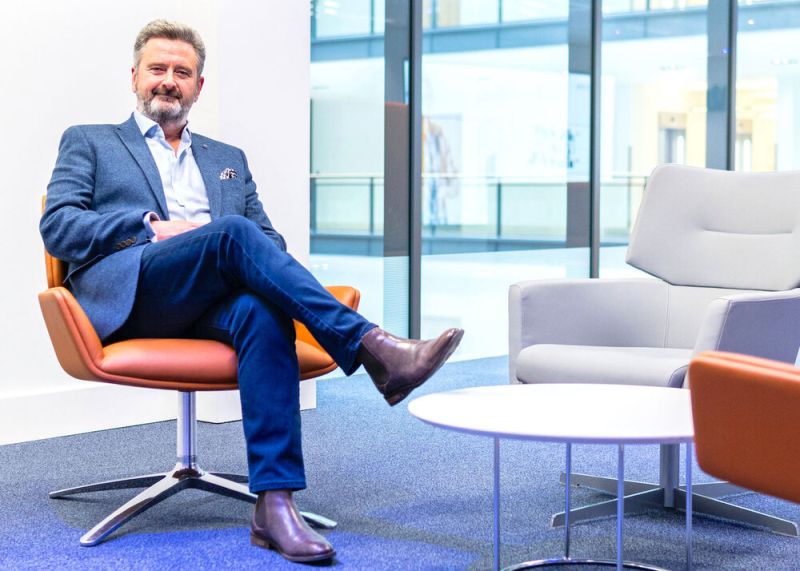
David Haley, Vice President of Growth, Kyndryl: “Primary and social care HAS to be finally tackled without the worry of losing votes! The NHS is an amazing organisation but needs serious root and branch review and change. This will support and transform primary care and then, of course, ensure a social care provision worthy of our older citizens.”
Sarah Waddington CBE, IoD branch chair, North East: “Any incoming Government will have very few levers to kick-start the economy but one way to achieve this would be through diversity of thought. I’d like to see wider access to workplace training and opportunities for every section of society.”
Bob Cuffe MBE, chair, vice chair and NED: With two disabled children I’ve had over 30 years experience of the care sector. From parents looking after their children, to the wonderful team at NEAS keeping Liam happy, safe and well, through to social care — the system and those toiling in it are ignored and undervalued. I’d like a complete review from childhood to old age — and to see a system that financially recognises the worth of carers.
Alastair Thomson, chief financial officer, The CFO Centre UK: “My wish is that a new government invests in education, at all levels, but especially in Further Education Colleges. From engineers to care workers, from accountants to apprentices, colleges train people in the skills the country desperately needs. Invest in them properly…it’s in the best interests of us all…!”

Wayne Halton, MHW PR director/owner: “Some form of wealth tax; there’s plenty of money in the economy but not in the right places. I would like to see ideas, innovation and hard work better rewarded than capital — where assets earn wealthy people money better than sweat. Taxes raised here can support the NHS, public services and stimulate the wider economy.”
Polly Brennan, Adventurous Coaching: “It would have to be to fix the healthcare system so that people could have quicker access to essential treatments and that it could become a sustainable place to work and help people. Also we need more health promotion and early intervention strategies for health & wellbeing. I left a career of 26 years as an occupational therapist in mental health services in order to focus on avoiding the secondary trauma of trying to navigate a broken system — I now catch people upstream with their mental health. This also saves my own well-being from diminishing as a health professional in a system that doesn’t work.”
Keith Taylor, UK Land Estates: “The one wish that I’d like to come true is that we elect a government that has integrity, honesty and standards. It’s a fundamental of any leadership team and we’ve been without it for far too long.”
Ailsa Rutter OBE, Director of Fresh and Balance: “As our biggest cause of health inequalities, take decisive action to end lethal tobacco smoking over the next decade, once and for all. This will have a huge positive impact on health, social care and the economy. It’s also crucial that alcohol is also taken much more seriously by the new Government and with alcohol deaths at a record high it is imperative that there is a national comprehensive strategy to address this.”
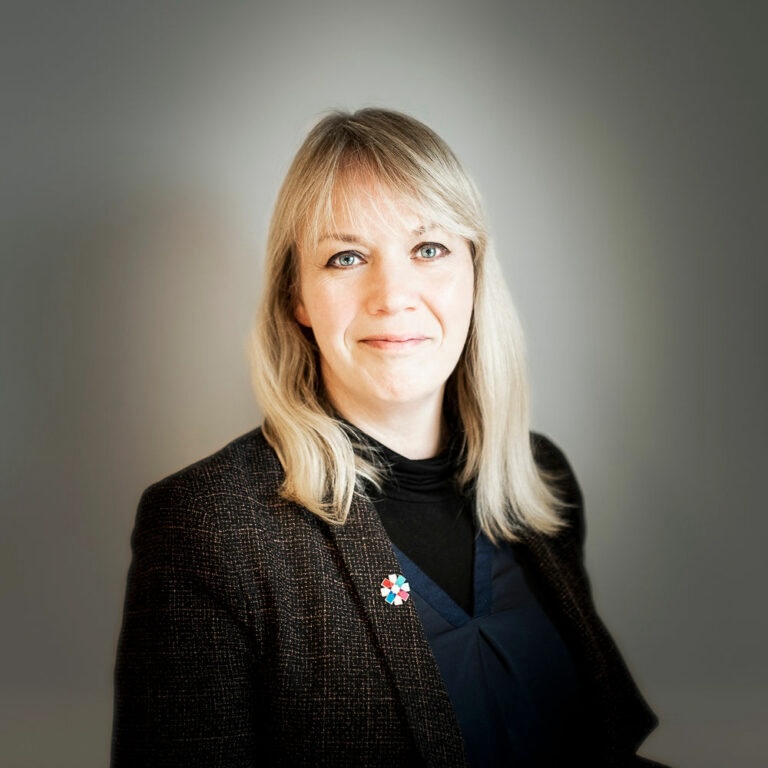
Nigel Mills, CBE, co-founder The Lakes Distillery Co: “The current planning rules and regulations are a barrier to growth and change. I would like to see the planning rules reformed to allow timely decisions to be made based on the needs of the community and society.”
Hannah Davies executive director Health Equity North: “Tackle child poverty. As a country we have got poorer while at the same time eroding the safeguards that protected children. Poverty has hit those already living in the hardest circumstances most and pushed them into unacceptable levels of deprivation. We’re cheating the next generation, stifling their life chances by not giving them the potential to flourish. To end this neglect, the next government needs to immediately invest in welfare support for families in poverty, or at risk of poverty, invest more in education in the poorest areas, in social care for families, for care leavers and those in danger of going into care, and get rid of the two-child cap on Universal Credit.”
Jane Robinson, Pro Vice-Chancellor Engagement & Place, Newcastle University: “If I could have one wish it would be reinstating maintenance grants for those who need them most. In the North East we have the lowest participation rates in Higher Education in the country. Concerns about living costs should not be a barrier to opportunity.”
Bob Hudson, academic and QT columnist: “Tony Blair promised to fix it; he didn’t. Boris Johnson said he had a plan; he hadn’t. The failure to address the crisis in social care is the longest running policy failure of recent times. The next government must sort this out. Doing so requires: no bluster about seeking an all-party consensus – act immediately; proper funding of local councils to ensure service delivery; implementation of existing (but perpetually delayed) legislation to put a cap on care costs for individuals; appreciating that social care is a distinct service, not one that exists merely to help out the NHS; reviewing the role of large corporate providers of services; and, most of all, listening to what users and carers say about the type of support they need and want.”
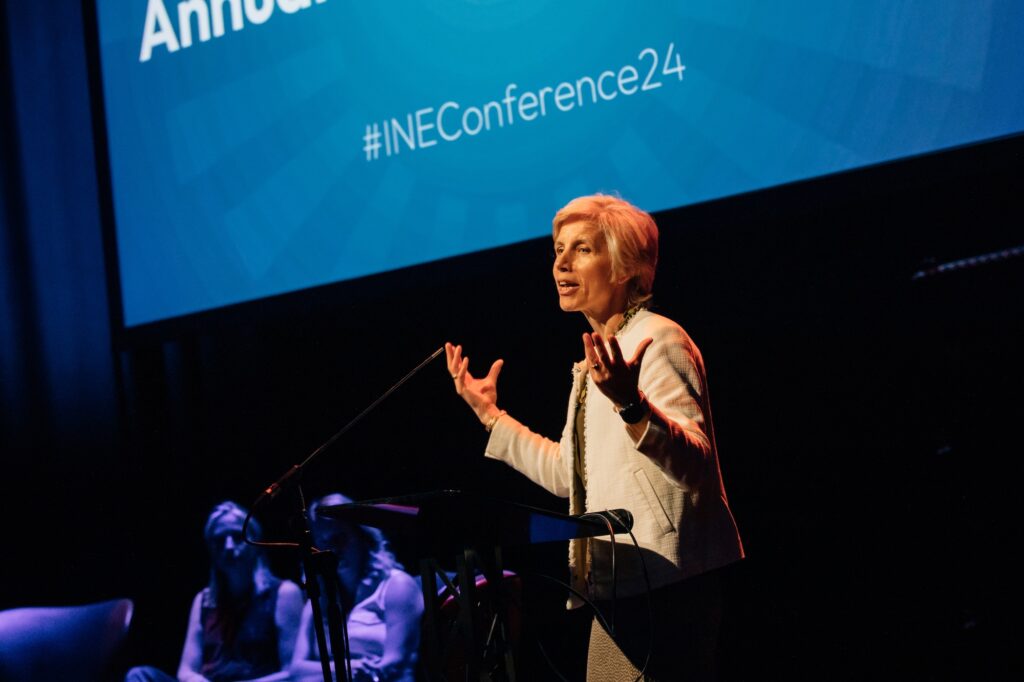
Tom Solly, chartered wealth manager, Brewin Dolphin: “My one thing would be to bring down the tax burden. Assuming the polls are right, Labour talks about being the party of wealth generation but simultaneously refuses to rule out tax rises on key areas for wealth generation.”
Sally Young, former chief executive, Newcastle Council for Voluntary Services: “My wish would be for the next Government to reintroduce SureStart (Mark II) Centres. Maybe rebadged as New Start. These would be area based, placed in existing but repurposed buildings, employ local people, and be led by local communities, and be supported by voluntary organisations. These would be key to reducing child poverty; improving literacy, numeracy and child development; providing support, development, friendship and training for parents and carers; and be a great way of providing employment and apprenticeships for local people. They should not be ‘an arm of the state’, but allowed to grow and develop responding to local need. They would offer good wages and be a fair employer. Most importantly, they should be allowed to grow for at least twenty years, so the generational impact could be seen and appreciated.”
Daniel O’Mahoney, managing director Bradley O’Mahoney: “I want to see a clearly defined industrial strategy. Instead of lurching from one initiative to another, a 10 year, transparent plan, that focuses on what we need to do to grow the economy, the sectors that will get us there and the support Government will provide the corporate sector to ensure the plan is realised. It sounds obvious, but it has not happened up to now.”
Paul Callaghan CBE, chairman The Leighton Group: “We live in an affluent country yet here in the North East more than a third of our children live in poverty and so I would like the incoming Government to scrap the two-child-cap on Universal Credit which was introduced as part of a series of welfare cuts by Theresa May’s Government in 2017. Ending the two-child limit could lift 250,000 children nationally out of poverty directly and improve the financial circumstances of more than 1 million children. Let us begin the new government by helping the most vulnerable in our society.”
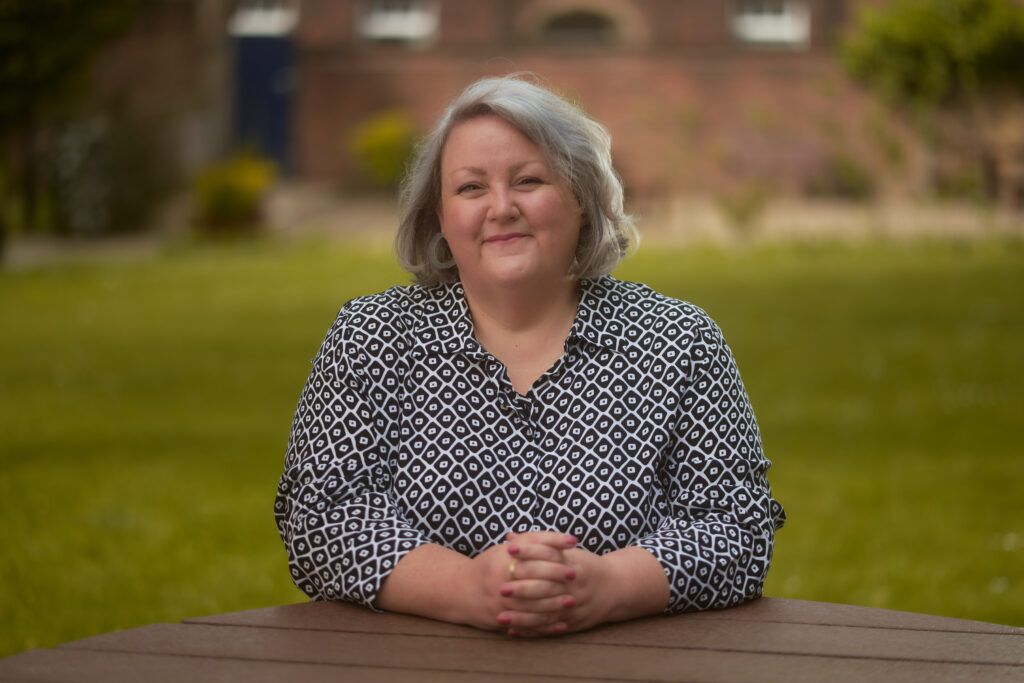
Claire Malcolm, CEO New Writing North: “Where to start! Telling the truth about climate change.”
Mark Robinson founder and director Thinking Practice: “I wish a new government would put arts, culture and creativity back in the heart of education and, outside the curriculum, invest in a massive devolved programme employing hundreds and thousands of creatives in schools, youth clubs (also revived!) and communities, from early years to universities.”
Mike Matthews MBE, business consultant: “Reducing the wealth gap by increasing prosperity for the whole of the UK population not just those in the rarefied atmosphere of the top few per cent. Only one way to do this in my humble opinion and that is boosting GDP per person, which will only be achieved in my view by an effective national Industrial & business strategy. Both of which have been missing for decades. It’s simple we have got to reduce our costs or boost our income – GDP!”
Dr Charlotte Carpenter, Executive Director, Growth and Business Development, Karbon Homes: “My wish would be for the next Government to develop — and invest in — an economic strategy that helps narrow the disparity in productivity between, and within, the UK Regions. Closing this gap, and firing on all our economic cylinders, would not only boost the UK’s international competitiveness and economic resilience but would also help tackle economic inequality, poverty and boost standards of living.”
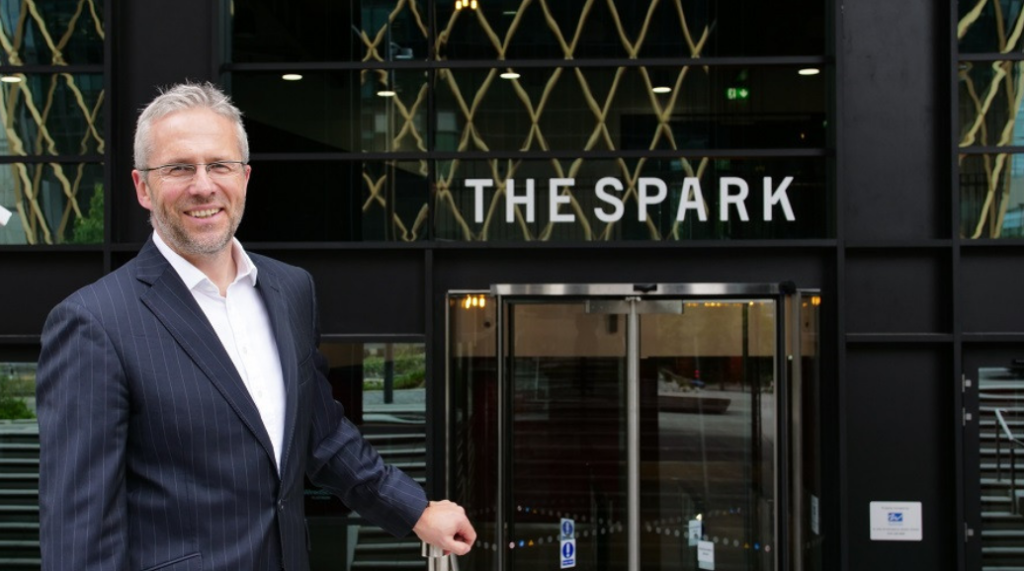
Matt McGough, MD, Ithica: “Independence referendum.”
Matthew Ord, company ambassador LV Logistics UK: “My one wish for the next government would be to prioritise transparency and truly understand the desires of the majority in the Country. This would involve implementing measures to increase government accountability, ensuring that decisions are made based on the needs and wishes of the people. By fostering open communication and actively seeking feedback from the public, the government can make more informed and inclusive policies that truly reflect the will of the majority.”
Jen Harrison, Director, Connected by Change: “On the big issues of poverty, inequality and the social determinants of health, I’d love to see the incoming government bake in a commitment to improving the health of generations — starting today. To do that, we need to rebalance our economy. But more than that, we need a different style of government: one that listens intently to people and communities, prioritises prevention, and works to build consensus in tackling our most complex social challenges. Central government can’t legislate for human connection, but it can help to create the conditions for people and places to thrive.
Nigel Emmerson, Partner, Womble Bond Dickinson: “Reverse the 40 year decline in Legal Aid funding so that the general public can be adequately represented in civil and criminal cases. Legal Aid has been under-funded for decades. This has led to many solicitors giving up this type of work as they cannot get adequately remunerated. Access to justice for all is a fundamental part of our society. Without it dangerous times lie ahead.”
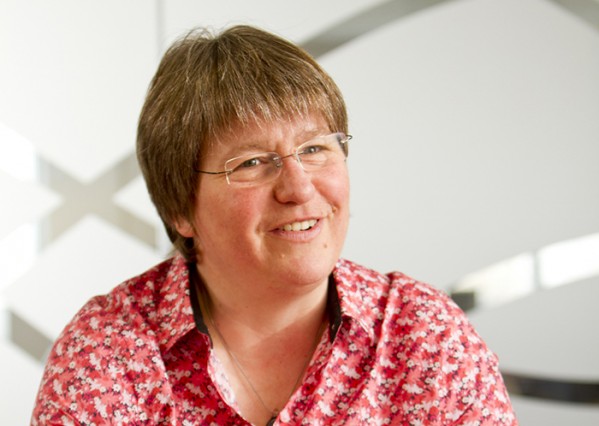
Lucy Armstrong, CEO The Alchemists: “Reorient the priorities of all public bodies to focus on and be measured by the achievement of the long term societal goals: just green transition, climate change and ageing demographics. An example of what this will mean is a presumption in favour of infrastructure investment (digital as well) by planners and it will require proper cross department and local/central government cooperative working. To achieve this politicians of all parties need to sign up to a shared long term framework for societal renewal. This will take decades not months and not a single parliamentary term.”
Ivan Hollingsworth, director Central Consultants Ltd and chair of Children’s Heart Fund Unit: “I want the next government to prioritise investment in wellbeing. Not just the ‘fluffy and soft’ stuff, but testing policy for its impact on wellbeing. The positive impacts on every element of society (including the economy) have a wealth of evidence. The first place I would start this, would be to prioritise social capital. We need investment in places for people to gather; whether it’s parent and baby groups, teenager and young adult centres and places for older adults.”
Mark Allison, Run Geordie Run and Test manager DWP Digital: “I would like to see the introduction of policies (whether that be through commercial taxation or incentives) and laws that would see the return of the glory days of Newcastle City Centre. How do we help the homeless? What can we do to make the city centre a more desirable place to visit? How do we increase footfall in the desolate parts of the city centre? How do we create innovative attractions? How do we improve local transport links?”
Charlie Charlton, journalist and presenter: “The biggies for me are health and education. Good, fair provision of both, for all. Without this we cannot tackle the inequalities between the regions and even neighbouring boroughs. How? Make social care a priority alongside the NHS. You CANNOT fix one without the other. Use the latest independent data and reviews to fund these services in the most focussed way with a long term, cross-party plan. This should not be party-political. Same goes for education.”

Arlen Pettitt, freelance writer, policy consultant and The QT columnist: “Partners taking time off to spend with their new child are paid just £184.03 per week. Family finances mean leave take-up is low, as men, who tend to be the higher earners, stay in work and women take a career break. We lag behind countries like Germany, Sweden and Japan in the generosity of our parental leave. If we fix the system by making it pay more generously, families will make decisions based on their heart not their wallet. We’ll improve outcomes for children. We’ll close the gender pay gap. And we’ll start to address some of the social and economic inequalities which revolve around families.”
Jamie Eastlake, Artistic Director and co-founder at Laurels Theatre: “I would 100 per cent get ‘Creative Partnerships’ reintroduced. It was a staple of the last Labour government’s investment in grassroots as their flagship creative learning programme. I wouldn’t be doing what I’m doing now without the access it gave me. Creative Partnerships allowed me to work with professionals, get into proper creative venues (I starred in a show at the Sage Gateshead which is still mad) and give a bit of hope that there were other jobs out there rather than going to work in a factory like everyone before me had done.”
Loujane Alasi, communications professional and freelance journalist: “My wish for the next prime minister is to tackle the child poverty epidemic plaguing children and young people across our region and country. It’s not right that children and young people are being left behind and stunted from reaching their potential in school, in the community and at home. We need to reverse youth service cuts, properly invest in our schools and remove the two-child policy limit. Investing in children and young people today is investing in our future, but most importantly, it’s the right thing to do.”
Keith Merrin, director Tyne & Wear Archives & Museums: “The new government must urgently address the crisis affecting many cultural institutions outside of London after years of pressure on local government funds. Regional museums and arts venues are vital to the life of communities up and down the UK and can deliver direct impact supporting health and wellbeing, tackling disadvantage, increasing skills and growing the economy. New sustainable funding models are needed for all cultural institutions in the longer term but meanwhile a short term intervention could stabilise those at greatest risk.”

Sarah Glendinning, director of Business Partnerships, Northumbria University: “One thing I would like the next government to do is to reform the maintenance funding system for students — it’s so important for the future success of our economy to do all we can to ensure that we support those from all backgrounds to succeed.”
Jonathan Blackie, culture partnership manager, Association of North East Councils: “I have always been interested in economic development, bringing life back to communities in jobs and investment. My proposition to a new Government would be to create a ‘Growth Fund’ of more than £1bn to support economic growth and ‘close the gap’ between North East England and the rest of the UK. I would expect that it would be delegated to the new Mayor, as one of a series of measures. In part this would seek to replace EU Funds, which were lost following Brexit, and also the reduction in Government support arising from a decade of austerity. It would kick start a new era of optimism.”
Matt Boyle, OBE, managing director PEMD Innovations: “A green based Industrial strategy that survives an administration change!”
Clare Morley, CEO at Rise: “On the basis that our children are our future, the next government must guarantee every child access to 60 physically active minutes per day in order to improve children and young people’s physical and mental well-being, as well as their levels of achievement. Sixty minutes is the Chief Medical Officer’s recommendation, yet only 47 per cent of children and young people achieve this, and those from lower socioeconomic backgrounds, culturally diverse communities or those with a disability, are even less likely to reach this important measure.”

Stuart Lynn, NED Newcastle Building Society: “I won’t choose the obvious of fixing Brexit or rebuilding important trading relationships with our European counterparts. Instead, my wish is for the next government to restore trust and work cohesively and with integrity for the entire country, not just for traditional ‘southern’ regions and specific demographics. For the North East, this would mean much-needed investment in core infrastructure, and services which serve the public interest, to stimulate economic growth, enhance the quality of life for our residents, and make our region a more attractive place to live and work.”
Alastair Bonnett, Professor of Geography Newcastle University and The QT columnist: “A healthy democracy relies on a healthy media. By introducing a network of regional public broadcasting companies the new Government could start a new era in British media. They would sit alongside the national broadcaster, the BBC, and provide a space for regional journalism, democracy and creativity. The money would come from an increased licence fee, which could be banded proportional to income.”
Professor Karen O’Brien, Vice-Chancellor, Durham University: “I am always so concerned that young people today face disadvantages and challenges that are far greater than my generation, and that they are outnumbered by us older folks. As the 4th July approaches, I have been recalling the words of Thomas Jefferson, the leading author of the American Declaration of Independence ‘I am increasingly persuaded that the earth belongs exclusively to the living and that one generation has no more right to bind another to its laws and judgments than one independent nation has the right to command another.’ I worry that we have become a backwards-looking country. We are right to pride ourselves on what we can build on from the past, but we cannot dwell on our past. We need to focus on the needs of this generation and future generations as they face an economically and geopolitically uncertain future in the context of the climate crisis. My wish is that the incoming government looks to the future through the eyes of our students and young people. They should re-read the 1997 UNESCO Declaration of the responsibilities of the present generations towards future generations. I hope we can all put the rights, education and needs of children and young adults first, and do everything we can to give them an earth that is in a fit state to belong to them.”
Bethany Usher, Director of Education, Newcastle University: “With a wave of my magic wand, I would wish for an exuberant people-first renewal of manufacturing, design, arts and exports in order to build an economic system that works for all and is fair to all. I’d pour fairy dust on our finances so we could finally banish the spectre of austerity. Workers would get an increased say on how companies are run, there’d be fair taxation and greater incentives for socially-minded investment. With this one wish, all the other things I most long for — from the eradication of poverty, to a strong and thriving NHS, fit for purpose schools and universities, better infrastructure and green renewal — could click into place. We’ve got to get the money working better to build Britain back in a way where all can share in the bounty.”
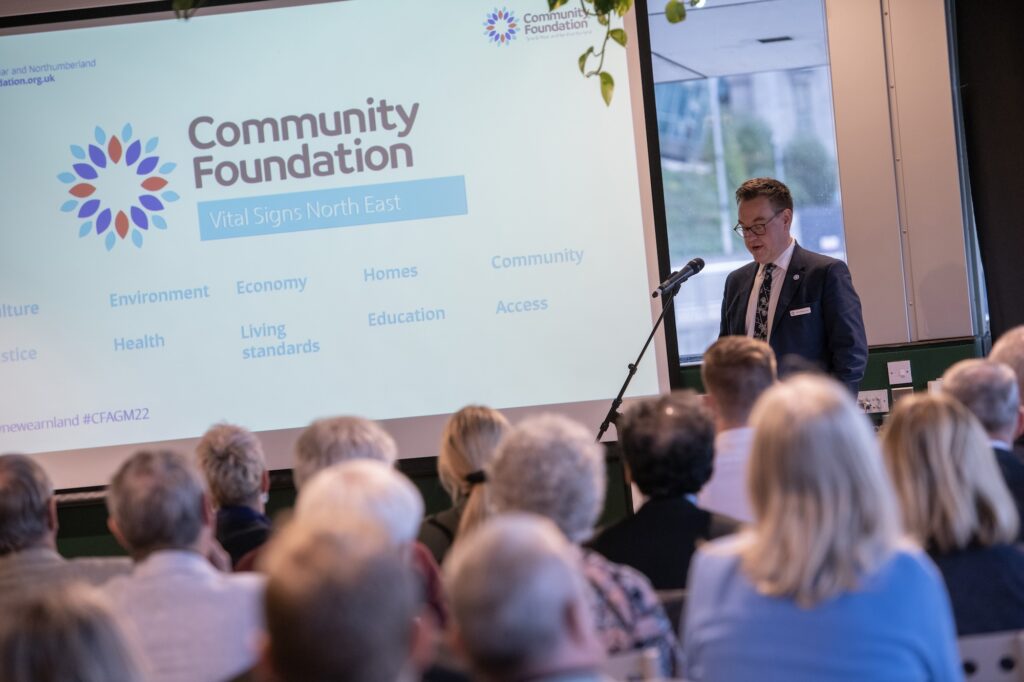
Nicola Jayne Little, Founder and CEO, Celebrate Difference: “Have some dignity for people with disabilities, whether physical or ‘invisible’ and sort out all the issues with payments that people are entitled to.”
Rob Williamson, OBE, Chief Executive Tyne & Wear Community Foundation: “Take civil society as seriously as you do business and the public sector. If the sector is allowed to thrive, it can get on with addressing issues like poverty, lack of opportunity, climate change and more. Get ahead by financing a new match scheme to incentivise more charitable giving and philanthropy through institutions like community foundations, especially prioritising regions like ours where there’s great need but also an amazing history of people and companies wanting to give back.”
Tania Cooper MBE, Chair at the North East STEM Foundation and Managing Director at Steel Benders UK: “The evolving demands of modern industry are not being met by the outdated and underfunded STEM education system which leaves students ill-equipped. Specialist STEM schools offer education tailored to industry’s requirements, but many face barriers to accessing them due to transport and associated costs. The next government must prioritise funding, and STEM education and training, if the country is to develop a skilled workforce capable of driving a low carbon economy.”
Sarah Green, Chief Executive, NGI: “In order to fulfil our ambition to double the size of the North East visitor economy, we ask the incoming government to address the workforce challenges across the tourism and hospitality industry by reforming the Apprenticeship Levy to allow for flexible training and make it easier for businesses to train and retain their staff in a way that reflects the 24/7 nature of the sector. This could be achieved through a modular approach to training whereby apprentices can learn as they earn and still meet the needs of their employers.”

Gavin Webster, comedian: “I’ve no interest in HS2, what I’d be really keen to see however is the government introduce late trains between all the major cities seven days a week, like for example the Kings Cross 00:05 service to arrive in Newcastle at 02:58. The fact that we don’t have overnight trains in a country of 67 million people with the sixth largest economy in the world, and the fact that we actually invented railways, makes us rightly a laughing stock. Put some later trains on, it’s not too much to ask.”
Danielle Croce, Commercial Director at Intasite: “It is vital that the next UK Parliament prioritises a comprehensive digital infrastructure policy. This policy should include enhanced cybersecurity measures to combat the rising tide of cyber threats, safeguarding both businesses and individuals. Ensuring universal broadband accessibility, with a focus on high-speed internet and 5G deployment, is essential to bridge the digital divide and support remote work and education, particularly in rural areas.”
Bill Dodd, Northumberland farmer: “After 14 years of austerity, lying, grifting and greed, my wish for the new government is to introduce some compassion back into political life. Families on benefits aren’t “scroungers”; they’re ordinary people, probably both working, who find paying for an unexceptional lifestyle a struggle due to government policy, be it high interest rates caused by an inept PM, high rents caused by a failure to regulate landlords, high food prices caused by a hubristic Brexit settlement, or are working in zero hours contracts allowed by inept business regulation. Let’s have some pro-family policies so that the parents in this country can begin to enjoy life again; get interest rates down, build social housing, attract industries with good, well-paid jobs, slim down the school curriculum so kids leave school literate and numerate and with time to enjoy their lives.”
Bill Scott, OBE, Chief Executive at Wilton Group: “I would like to stop child poverty. It’s extremely sad to see that one million children are living in EXTREME poverty. I would suggest that a government cross party group be specifically set up with representative front-line stakeholders from around the UK to create best practice to eradicate this appalling situation.”

Geoff Hodgson, Chair, Nigel Wright Group: “Sort out HMRC. For example processing of R&D claims.”
Jayne Reynolds, MBE, Business Development Manager at Northstar Ventures: “All governments require a healthy and growing economy to fund their spending plans. Enabling more entrepreneurs to launch and scale their businesses is key to the future. So, my wish is that the government give a renewed focus on supporting new innovative, scalable and ambitious businesses with specific start-up and growth funds to allow them to expand and contribute to the economy and society. This is particularly important in regions like the North East, which currently have very limited pools of venture capital.”
Jon Dudgeon, co-founder and CEO, Blusky: My wish for the next government is to enhance public transportation and cycle links in and around the North East, improving connectivity, reducing congestion, decreasing pollution, and providing more sustainable and accessible travel options for everyone.
Jennifer Hartley MBE, Director, Invest, NGI: “We would like the incoming government to unlock the potential of the regions to attract foreign direct investment by empowering metro mayors and local leaders with the resources they need to get investment decisions over the line. This could be achieved by strengthening regional investment promotion agencies and creating tailored financial packages in areas where there is market failure, in accordance with the recommendations set out in the Harrington Review of FDI, which we urge the government to consider in full.”

Laura Seebohm, Chief Executive, WWIN Domestic Abuse Services: “My wish is that the government would establish a cross party task force working across all government departments to actively tackle violence against women and girls — let’s reverse the statistic that two women are killed by a partner/ex-partner every week and domestic abuse accounts for one in five recorded crimes. Let’s invest to support survivors, protect children and prevent further abuse.”
Jo Milne, Founder, Cure Usher: “My wish is the new Government will bring back into focus the UK Rare Disease Framework, enabling those living with Usher syndrome access to a faster diagnosis, increasing awareness and funding for research into rare disease.”
Toby Bridges, CEO The NBT Group: “I want the government to do more to support SMEs through simpler and easier access to digital innovation funding for both creating new technology but for adoption too. Something more like the simplicity of applying for a bounce back loan rather than Innovate UKs process perhaps, or being more generous, again, with R&D credits and the like – ultimately to drive new ways to higher productivity using digitisation. And I want the decision making, as to how we apply any solution, to be made here in the NE, based on our own regional strategy for the long term, not just the next government cycle.
Erica Turner, Partner, Head of Commercial Property, Jacksons Law Firm: “Based on numerous conversations I’ve had with clients over recent years, the Government should be urged to undertake a complete overhaul of the business rates system. I deal with many small and medium sized businesses which collectively form the backbone of the UK economy. The current system is not fully understood by some with rates being calculated based on an often unquantifiable “rateable value” and for others it is prohibiting innovation, growth and increased employment given the already significant costs attributable to owning or leasing commercial property.”

Trai Anfield, wildlife photographer: “My wish, in one sentence: Stop destroying the tiny, precious remnants of nature we have left in this country.”
Caroline Pattinson, Director, Keith Pattinson Estate Agents: “I would like to see a commitment to large scale building of social housing which would not be subject to right to buy. The lack of affordable social housing puts an ever-increasing strain on the private rental sector and private landlords are vilified by politicians and pressure groups. Housing policies are well meaning but often have the opposite of their intended effects. The Labour Party commitment to the minimum of an EPC C rating for rental properties by 2030 will increase rents in some areas as landlords will need to invest significant amounts to bring some properties up to standard or won’t be able to rent properties, reducing the housing stock available in some areas and increasing rents.”
Lesley Fairclough, Partner, Ward Hadaway: “A much needed and long overdue radical review and simplification of the planning system. The English planning system plays a pivotal role in shaping the landscape of housing delivery, yet it often is seen as the cause of challenges and barriers that hinder the efficient provision of homes for communities across the country. As the demand for housing continues to outstrip supply, there is an urgent need to assess and enhance the effectiveness of the planning system to facilitate the delivery of much-needed housing.”
Steve Rawlingson, CEO Samuel Knight International: “Higher tax rate on personal earnings would be a good start.”
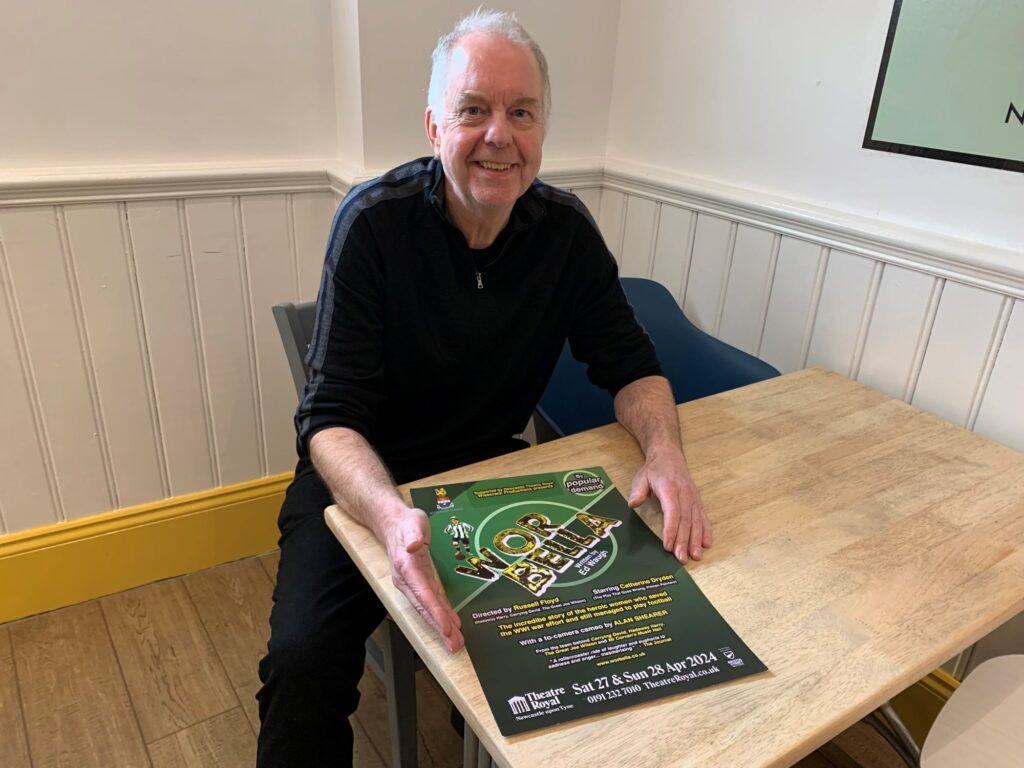
Ed Waugh, Playwright: “There are lots of things, like nationalisation of the commanding heights of the economy under democratic workers control and management but that isn’t going to happen yet. Therefore I’d call for the complete scrapping of the draconian, anti-democratic, anti-trade union laws (enacted from the Blair Government to today). This can be done — but will need an extra-parliamentary push from the Labour and trade union movement to remind Starmer who Labour are supposed to represent.”
Erika Marshall, Group Marketing and Business Engagement Director, Education Training Collective: “Working in further education, and seeing first-hand the far-reaching impact education has on the communities we serve, topping my wish list is enhanced funding and simplicity for this sector. It must be easier for individuals to access the training they need to succeed in achieving personal career goals, employers must be supported so that workforces are equipped with the skills businesses need for future growth of our economies, funding must be enhanced to ensure that colleges can attract the best, skilled technical professionals to train the workforces of the future. And, any changes should be planned strategically, timely and with input from those who sit at the coalfaces of education and business.”
Lee Pickett, Partner, DWF Law: “Continue to relocate government headquarters to the North East with consequential positive effects on both the economy and public finances. It stimulates local economies; enhances regional representation by establishing second HQs in northern cities (like Darlington); contributes to Levelling Up; and spreads opportunity across the country. Overall, this should foster economic growth, efficiency, and better representation while saving public money through cost-effective regional operations. It also has the potential to start to reverse the ‘brain drain’ to London and other cities which the North East loses from.
Darren Richardson, Co-Founder and Creative Director, Gardiner Richardson: “My wish would be to have true investment into the future of our creative industry. We have an envied and global reputation in this space, but we need an education system which fosters creativity and provides an accessible pathway into creative careers.”

Graham Robb, Recognition PR: “My one wish would be for tax incentives for investors in companies that are owned and operated in the North East. Mayors can levy additional taxes, but not offer tax incentives. The business population statistics demonstrate we have among the fewest businesses per head of population in the UK, a legacy of years of ‘branch economy’ investments and big nationalised industries.”
Jo Curry, Sir James Knott Trust: “‘There is a sense that things just aren’t working across Britain. The place looks shabby and services are creaking. We need a massive review of public services – starting with Care. Then we need an honest conversation about how much it costs and who pays for it. Then we need to have a grown up reality check about paying a bit more tax to cover it.”
Andrew Haigh, Chief Executive, Newcastle Building Society: “Support for our high streets should be high on the list of priorities for the next government. Vibrant high streets are vital to the wellbeing of a community. They support local jobs and local economies. They play a unique role as a place where people can meet and connect; they can be the place where communities embrace those who need support and they act as a focal point for local identity and pride.”
Gary Fawcett, Chartered Wealth Manager, Raymond James Monument: “Simplify the tax system and thus promote fair taxation, sensible government investment and encourage long term saving. I don’t think businesses or individuals mind paying tax at a sensible rate – they just don’t want to be ripped off. We all know taxes are needed to run public services, but wastage should not be tolerated, and the Government should be accountable for how they spend taxpayers’ money. They should spend funds wisely on helping those less fortunate, as well as invest in areas of the economy for the long-term not just for a five-year period. For example, we should have long-term (I mean multi-decade) plans for transport, energy, healthcare, digital, etc.”
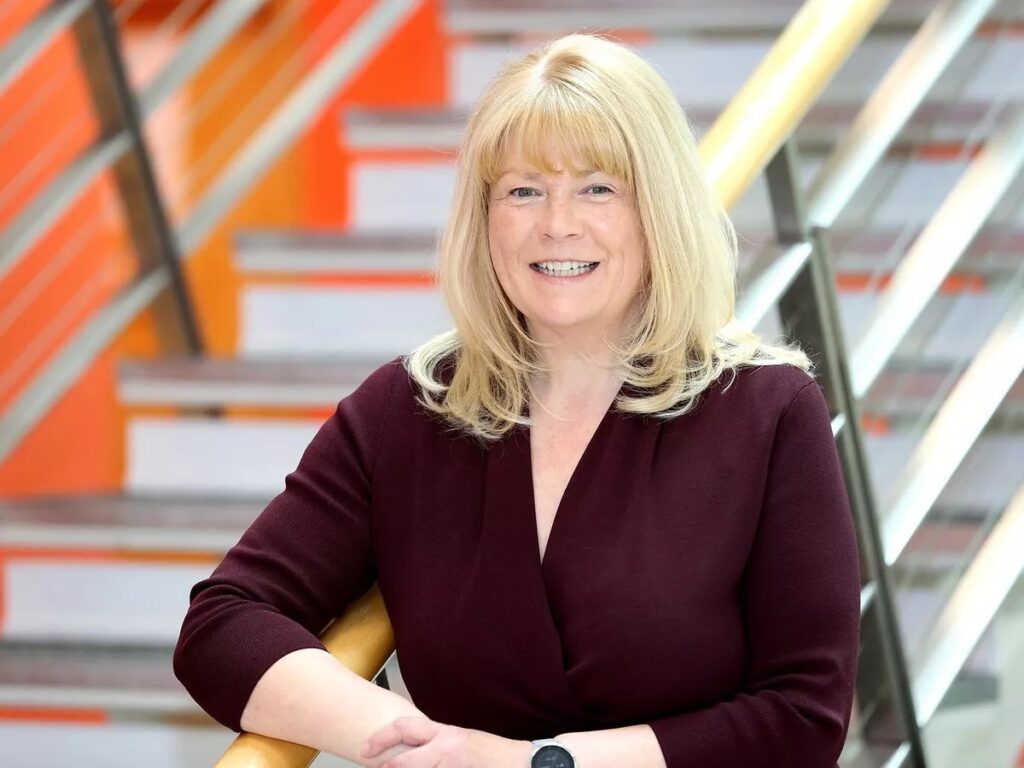
Kate Bradley, Consultant and NED: “I asked my kids, aged 9 and 11, to answer this question because it’s their future. What they want is support for hospitals, help for people most in need and to take the climate emergency seriously.”
Catriona Lingwood, Chief Executive, Constructing Excellence: “It is vital that we have a workforce that is competent and trained to make the most of the future opportunities in ensuring the North East has the volume of energy-efficient homes it needs, the infrastructure to ensure the economy thrives, and to tackle the retrofit of the built environment to meet net zero targets. The upskilling of the existing workforce with green skills is paramount. This will require a joined-up approach and thinking by the industry and training providers with the correct level of funding to help achieve this.”
Joe Docherty, Managing Director, Bede Homes: “I would like to see a return to stable predictability – normalcy as they say in the US. I mean that generally. In terms of house building – the UK Housing Market is widely acknowledged to be broken, and I would like to see a move to deliver more and better homes fast, with particular help to young people – especially those currently renting. We need a reset between the generations.











